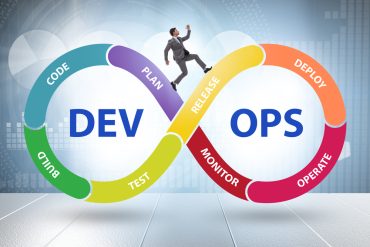
DevSecOps is a transformative approach that not only fortifies the security of business-critical applications but also empowers organizations to thrive in the digital age.
Business-critical applications such as Enterprise Resource Planning (ERP) systems play a pivotal role in running enterprises by supporting financial systems, human capital management, supply chains, and supplier relationships. These applications have become the backbone of operations for numerous organizations, including the largest organizations in the world. In fact, the ERP software market is projected to reach approximately 101 billion U.S. dollars by 2026, highlighting the imperative to invest in robust cybersecurity measures and implement proactive strategies to safeguard these critical systems from today’s cyber threats.
Customization and Complexity of ERP Systems
Over the past decade, cyberattacks targeting business applications have witnessed a significant surge. The consequences of these attacks can be catastrophic, leading to massive business-level disruptions. ERP systems are crucial for integrating various business processes and data, making them attractive targets for cybercriminals seeking sensitive information or aiming to disrupt operations. ERP systems are not just standardized software packages but rather intricate frameworks that map an organization’s unique business processes.
This customization is especially prevalent in the large enterprise sector, where ERP applications are tailored to adapt to specific business processes, making them even more attractive targets for cybercriminals seeking to exploit vulnerabilities or disrupt operations. As a result, the aftermath of such cyber events can be highly detrimental, underscoring the critical importance of having a robust Software Development Life Cycle (SDLC) that aligns security practices with the highly customized nature of ERP applications.
See also: 5 Ways to Lower Technical Debt Through Modernization
Challenges in Balancing Speed and Security in Digital Transformation
As organizations accelerate their digital transformation efforts, developing business-critical applications securely presents a daunting challenge. The pressure to deliver projects quickly also results in security being overlooked in favor of expediency. For instance, CFOs, in an effort to allocate budget to other initiatives, may reduce security spending, while CEOs and CIOs prioritize digital transformation initiatives. This shift in focus and reduced security investment increases the risk of introducing exploitable vulnerabilities, compromising the success of digital transformation efforts.
Another roadblock in achieving secure application development is the lack of adequate tools that support its unique components and integrate seamlessly with relevant development and change management environments. In addition, security testing for business-critical applications like SAP often relies on manual security reviews. Given that the average SAP system contains millions of lines of custom code and many organizations operate multiple systems, manual reviews are impractical and time-consuming. In the interest of timely project delivery, security due diligence may be rushed or, in some cases, skipped altogether due to the lack of automation tools.
Empowering Secure Digital Transformation with DevSecOps
In the face of these challenges, DevSecOps emerges as a key enabler for successful digital transformation while simultaneously securing business-critical applications. DevSecOps is not just a methodology; it is a mindset that prioritizes security from the inception of the development process. By integrating security practices throughout the software development lifecycle, DevSecOps addresses the pressing need to prioritize security without compromising the pace of business.
The five key principles of DevSecOps are:
- Proactive Security Integration: DevSecOps advocates for the early detection and mitigation of vulnerabilities, significantly reducing the attack surface and minimizing the window of opportunity for cyber threats. By incorporating security from the start, organizations can confidently pursue digital transformation initiatives without overlooking essential security measures.
- Collaboration and Alignment: DevSecOps fosters a culture of collaboration and alignment between development, security, and operations teams. This collaborative approach ensures that all teams are working towards a common goal of developing secure and reliable applications. By breaking down silos, organizations can effectively address the challenges of integrating outsourced developers into the development cycle without compromising security.
- Automation and Efficiency: Automation is a core principle of DevSecOps, streamlining security processes and reducing the manual workload. Automated security testing tools can help organizations efficiently assess and address security issues, even in complex environments. This automation ensures that security measures keep up with the rapid pace of digital transformation.
- Continuous Compliance and Governance: DevSecOps supports continuous compliance and governance by embedding security controls and compliance measures into the development process. This ensures that applications adhere to industry regulations and standards, mitigating compliance risks during digital transformation.
- Enhanced Risk Management: By adopting DevSecOps practices, organizations can proactively manage risks associated with digital transformation and secure their business-critical systems effectively. This proactive risk management approach mitigates the potential business-level consequences of cyberattacks, allowing organizations to confidently embrace digital transformation.
DevSecOps is a transformative approach that not only fortifies the security of business-critical applications but also empowers organizations to thrive in the digital age. As a key enabler for digital transformation, DevSecOps helps organizations strike a delicate balance between security and agility, ensuring secure software development while remaining nimble and competitive in an ever-changing market. Embracing DevSecOps as a core principle will undoubtedly empower businesses to seize the opportunities of digital transformation while safeguarding their most critical assets.



























